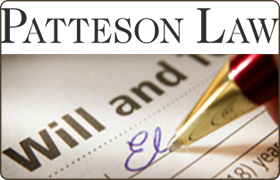Gregg County, TX Estate Lawyers
Sponsored Law Firm
-
 x
x

Click For More Info:
-
Patteson Law
218 N Broadway Ave, #304, Tyler, TX 75702» view mapEstate Wisdom. Experience. Integrity.
As a strong, aggressive advocate for his clients, and a well-respected member of the legal community, you can rest assured that your case is in good hands.
800-769-7481
Casey Goolsby
✓ VERIFIEDAccident & Injury, Business, Consumer Rights, Estate, Lawsuit & Dispute
Partner Casey Goolsby focuses his practice on civil litigation, personal injury and wrongful death, business, consumer, collections and appellate law,... (more)
FREE CONSULTATION
CONTACTT. John "Johnny" Ward
Transportation & Shipping, Wills & Probate, Bad Faith Insurance, Products Liability
Status: In Good Standing
FREE CONSULTATION
CONTACTThomas W. Reardon
Accident & Injury, Lawsuit & Dispute, Estate, Bad Faith Insurance
Status: In Good Standing
FREE CONSULTATION
CONTACTBruce A. Smith
Construction, Wills & Probate, Bad Faith Insurance, Products Liability
Status: In Good Standing Licensed: 38 Years
J. Scott Novy
Juvenile Law, Commercial Real Estate, Wills, Criminal
Status: In Good Standing Licensed: 38 Years
Myla G. Mayberry
Personal Injury, Family Law, Wills, Child Custody
Status: In Good Standing Licensed: 36 Years
Andrew George Khoury
Lawsuit & Dispute, Estate, Corporate, Accident & Injury
Status: In Good Standing Licensed: 30 Years
 Richard Patteson Tyler, TX
Richard Patteson Tyler, TX AboutPatteson Law
AboutPatteson Law Practice AreasSpecializations
Practice AreasSpecializations

